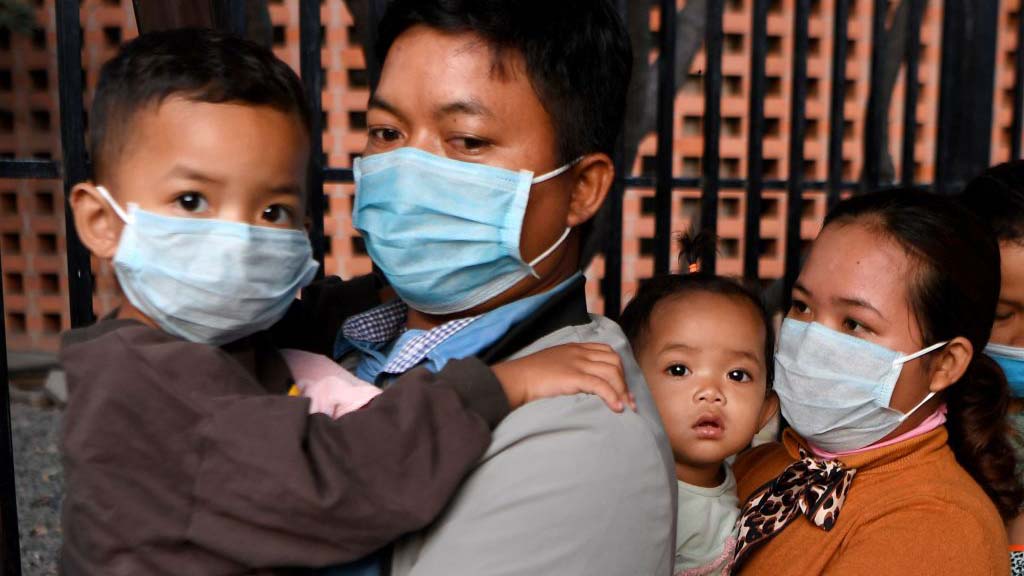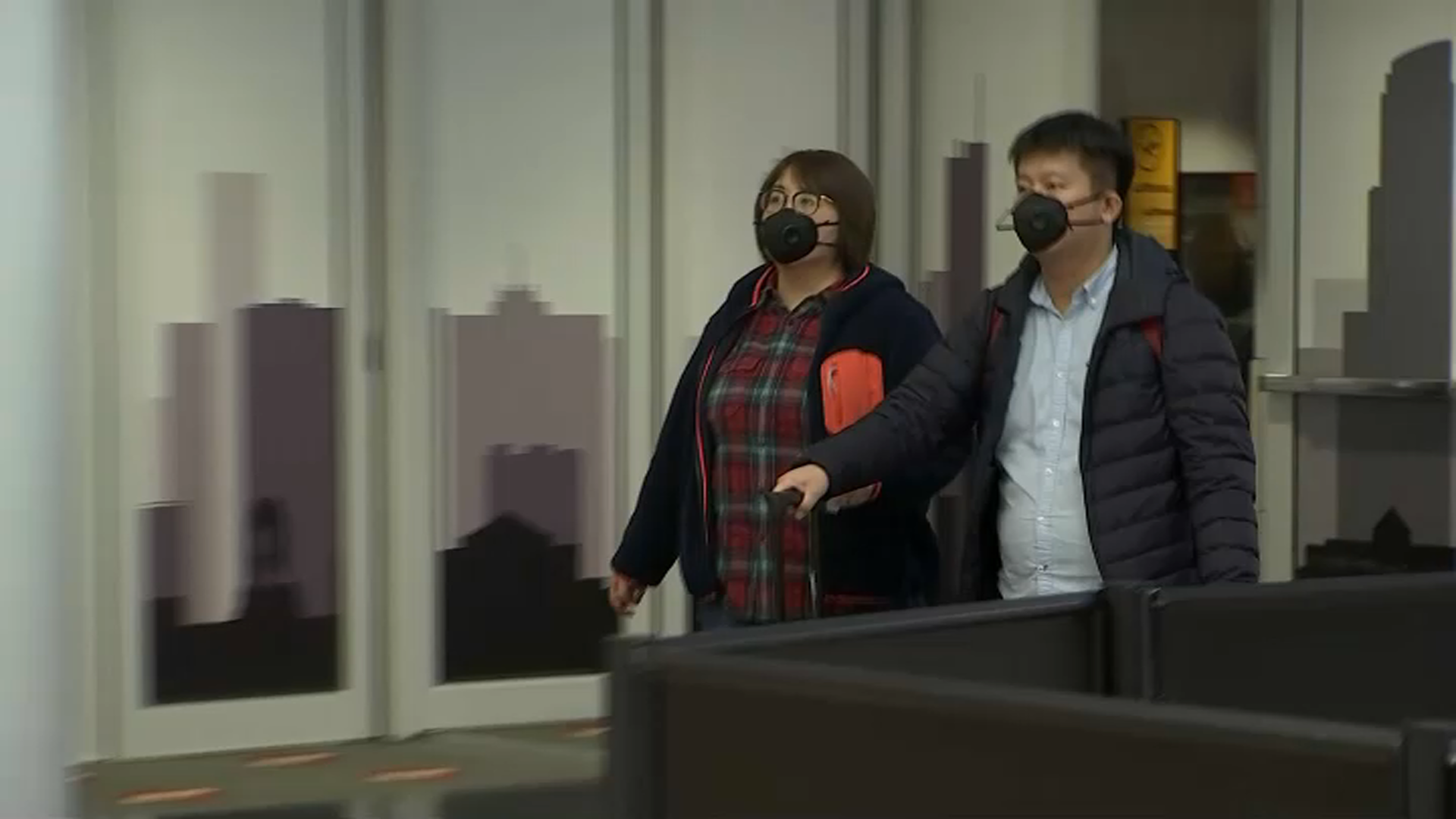After the Centers for Disease Control and Prevention warned Americans to start preparing for a possible pandemic outbreak of the coronavirus in the United States, Chicago-area schools said they are monitoring the situation.
New Trier High School Superintendent Paul Sally said Wednesday the school is taking steps proactively to keep campuses safe.
"The primary way for students and staff to avoid influenza, COVID-19, and other viruses is hand washing, covering coughs and sneezes, and staying home if they have symptoms and/or a fever," Sally wrote in a letter to families. "Teachers are aware of the need to be flexible with students for making up work after an absence due to illness. We want to make it as easy as possible for families to make the decision to keep students home from school if they are not feeling well. If you have concerns about missed work due to illness, please contact your student's adviser, who can help create a plan with teachers."
He added the school's surfaces are being wiped down daily, classrooms are cleaned daily, bathrooms are disinfected, floors are being cleanred and common areas are sanitized.
"Since the flu season began, we also have taken additional disinfectant measures, such as the use of ultraviolet light to target germs in high-use areas of our campuses," Sally wrote.
He noted the school is preparing for the possibility of a large number of absences and has short- and long-term plans for closing campuses if necessary.
Oak Park River Forest High School also posted a message to students, staff and families Wednesday saying it will "continue to closely monitor recommendations regarding coronavirus." The school noted that the Illinois Department of Public Health recommends schools hold classes and events as usual, and "follow their routine cleaning and disinfecting procedures."
"[The department] also says that the best way to protect against coronavirus is by taking the same everyday precautions against getting sick in general," the message read.
Similarly, Oak Park Elementary Schools District 97 said "health officials have indicated that the risk to the general public remains low and they are not recommending canceling any classes or mass gathering."
"The health and safety of our students and staff is our top priority," the district wrote. "Please be assured that we are following all recommended protocols of the IDPH, which includes routine cleaning and disinfecting in all of our buildings. We will continue to monitor updates about the coronavirus from local, state and federal agencies, and will keep families informed should recommendations change."
That same day, Barrington School District 220 wrote that it "continues to follow the guidance from the Centers for Disease Control, the Illinois Department of Public Health, and the Lake County Department of Public Health."
Earlier this month, Stevenson High School urged any student returning from mainland China from Feb. 3 and onward should not attend school for 14 days after their return to the U.S., according to guidance from the Illinois Department of Public Health.
"Family members should not work if they also traveled," the school's message read. "Students who returned from mainland China prior to Feb. 3, 2020 can remain in school."
In late-January, Lincolnshire-Prairie View School District 103 said it received concerns after a family recently returned from China.
"We have been in contact with the family and their situation. The family was not in an infected area, and took extreme care to ensure they were not exposed to the virus while abroad," Superintendent Scott Warren wrote in message to families. "The family was screened on their return trip and were cleared as showing no signs of illness."
Still, the school said for families who choose to keep their children at home, they will count the absence as excused.
"We continue to closely monitor the coronavirus situation and will keep you updated should circumstances change," Warren wrote.
The Illinois State Board of Education told NBC 5 it is "distributing to schools and districts the Illinois Department of Public Health’s guidance for schools." It also handed out travel advisories from the U.S. Department of State, the CDC and the World Health Organization.
"The Illinois State Board of Education highly recommends that any anticipated or planned travel to China should be postponed to a future date or canceled and replaced with another trip," the board said in a statement.
The Centers for Disease Control and Prevention stepped up its call Tuesday for the public to start preparing for a possible pandemic outbreak in the U.S. with more than 80,000 people infected and at least 2,700 killed overseas in less than two months.
“We are asking the American public to work with us to prepare for the expectation that this could be bad,” a top CDC official told reporters in a conference call outlining what schools and businesses will likely need to do if the COVID-19 virus starts to spread throughout the U.S.
Schools should consider dividing students into smaller groups or close and use “internet-based teleschooling,” Dr. Nancy Messonnier, director of the CDC’s National Center for Immunization and Respiratory Diseases, told reporters on a conference call.
She said local communities and cities may need to “modify, postpone or cancel mass gatherings.” Hospitals may need to triage patients differently, add more telehealth services and delay elective surgery, she said.
“Now is the time for businesses, hospitals, communities, schools and everyday people to begin preparing,” she said.
Chicago Public Schools nurse Dennis Kosuth told the New York Times, however, that some families who cannot afford childcare may not be able to keep their children at home, which could complicate containing a potential outbreak. He also said some schools lack rooms dedicated to health needs.
Localized outbreaks in places such as Italy and Iran are fueling concerns among infectious disease experts and scientists that the virus is spreading too quickly and may be past the point of containment.
On Monday, Tedros Adhanom Ghebreyesus, director-general of the World Health Organization, called the outbreaks outside of China “deeply concerning.”
“I understand this whole situation may seem overwhelming and that disruption to everyday life may be severe. But these are things that people need to start thinking about now,” Messionnier said on Tuesday. “You should think about what you would do for child care if schools or daycares closed.”
The CDC late Monday confirmed 53 cases in the U.S., a majority of which came from passengers repatriated from the Diamond Princess cruise ship that was quarantined off the coast of Japan. The data shows that 36 of the cases are attributed to the cruise ship, three patients were infected in Wuhan and later evacuated to the U.S. and the rest were largely infected while traveling overseas.
The Illinois Department of Public Health also weighed in with specific ways to "help prevent the spread of coronaviruses and protect yourself from becoming infected":
- Wash your hands often with soap and water for at least 20 seconds
- Avoid touching your eyes, nose, or mouth with unwashed hands
- Avoid close contact with people who are sick
"There are currently no vaccines to protect against human coronavirus infection," the IDPH wrote online. There also are no specific treatments. To help relieve symptoms, the IDPH recommends:
- Take pain and fever medications
- Drink plenty of liquids
- Stay home and rest





